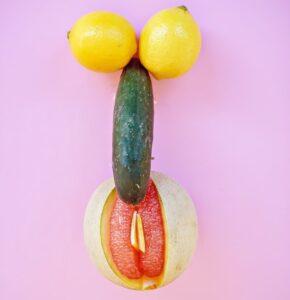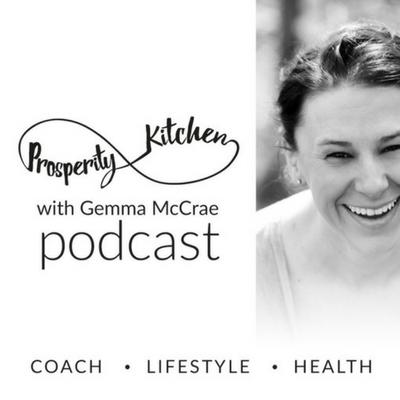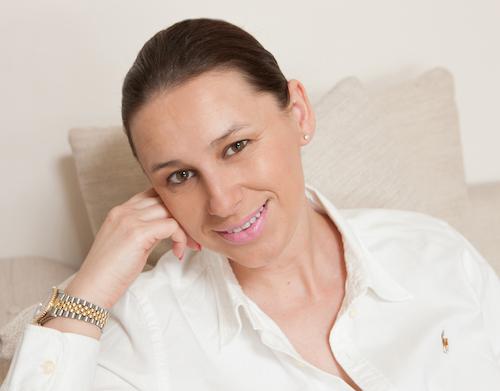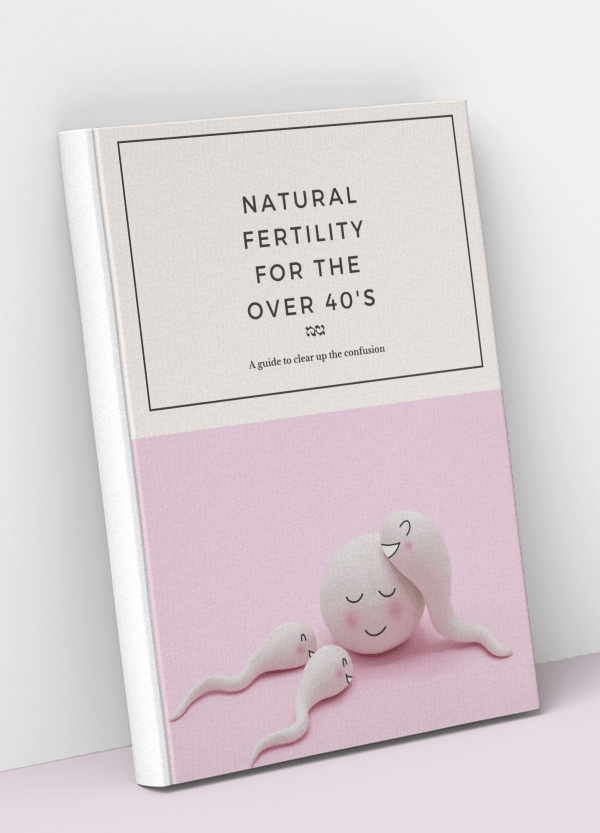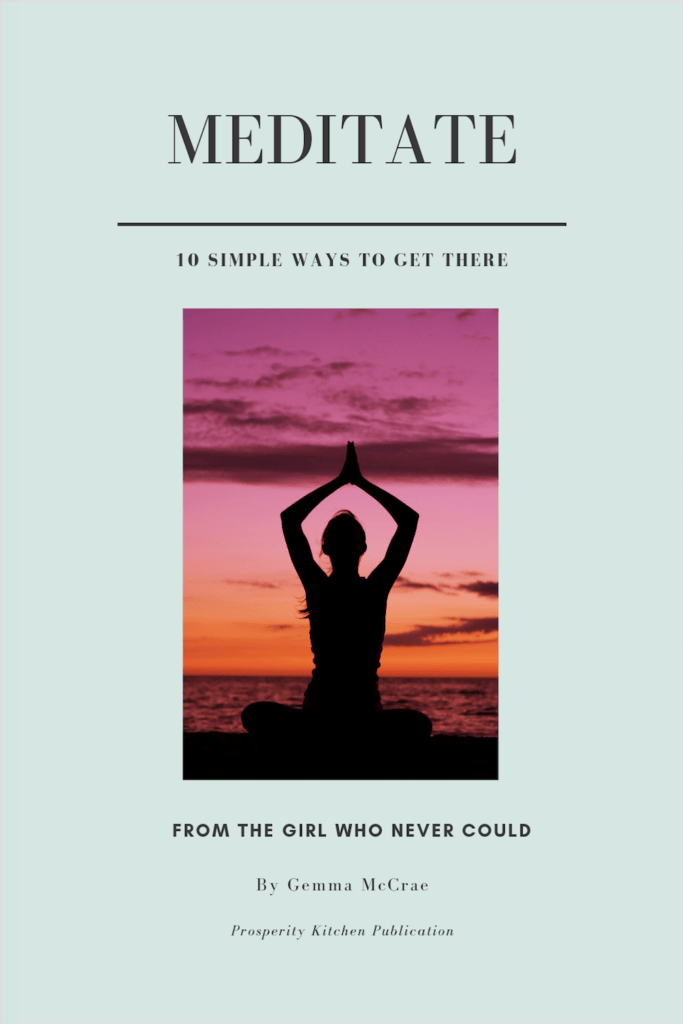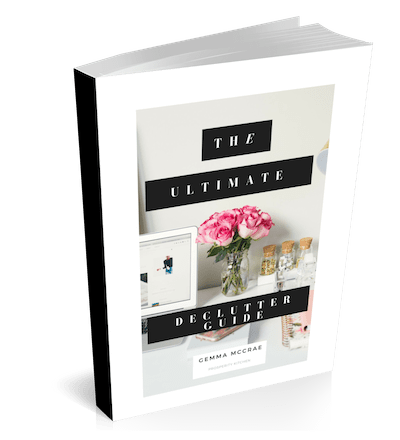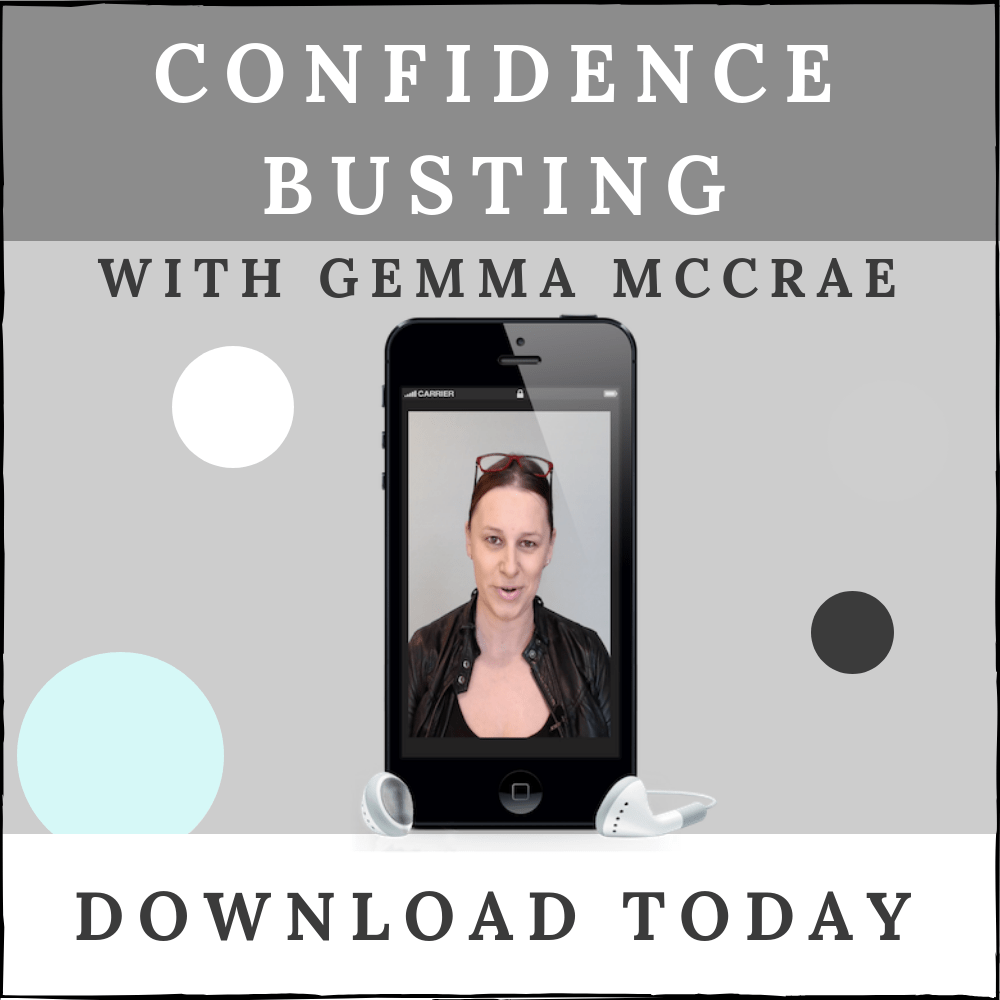Welcome to Natural Fertility for the Over 40’s: The Facts
Before we begin I want you to know I’ve been there and the information in this blog has been lifted directly from the first chapter in my e-book: Natural Fertility for the Over 40’s: A Guide to Clear Up The Confusion.
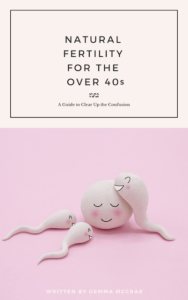
I decided to write the book after the huge success of my blog post: The Top 10 Things I Did To Get Pregnant At 41 and my increasing worry over the sheer number of women who are pushed down the assisted fertility route when they probably can get pregnant naturally if they gave it more time.
You’re welcome to read my back story by clicking here, but in a nutshell, I first started trying for babies when I was 38. I did get pregnant, but here started a two-year period of miscarriage after miscarriage.
In the end I went to my GP and then to a Fertility Consultant, where I was categorically told due to my age and AMH levels, it was highly unlikely that I would fall pregnant naturally. It was highly unlikely IVF would work. I had a 50% chance that an egg donor would work.
I felt doomed.
I eventually fell pregnant with my daughter when I was mid 40 and my son when I was 42.
NATURTALLY.
I had no fertility treatments at all.
So, if you’re reading this and you’ve gone through the heartbreak of a miscarriage or you haven’t been able to get pregnant at all then DO NOT LOSE THE FAITH! I was told by the experts it categorically wouldn’t happen to me and it did.
BUT.
I need to be 100% clear with you here from the outset.
Get the fertility tests done as early as you can (more on this later) and then try to be objective as you can about how long you can give yourself to fall pregnant naturally.
I managed to get pregnant naturally because even though my AMH (quantity of eggs) was considered low at 7, I still had an AMH level. So, I knew I had a chance. But if you unfortunately have an AMH of 0 or your partner has zero sperm count, then you’re not going to get pregnant naturally I’m afraid, you will need further help.
Getting pregnant doesn’t happen by magic. It’s a complicated process creating life BUT if you have eggs (check AMH levels), and no reproductive organ issues and your partner has healthy sperm, then you can get pregnant.
If you’re over 40 it’s just a case of weighing up how long you want to wait and try naturally as opposed to getting help.
It’s a tricky one and it’s THE big question that nobody can answer except for you.
Ok, the hard talking over with, let’s begin.
To kick Natural Fertility for the Over 40’s: The Facts off, I’m outlining to you my ultimate advice for getting pregnant naturally over 40 and it builds upon my blog post: The Top Ten Things I Did To Get Pregnant Naturally at 41.
As I said above, it’s what I wished I had known and has been compiled following nearly 6 years of personal research.
Here we go:
GET CHECKED
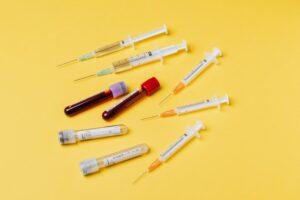
Before you do ANYTHING; ANYTHING AT ALL, get the medical checks done. If you’re over 40, you may struggle to get much done on the NHS, but the first port of call should be your GP regardless. See what they can assist with on the NHS.
If not go private.
But be aware. Your GP will be resistant to help you unless you’ve been trying for at least 6 months and then will probably just tell you it’s normal to take 2 years. So, get your story straight hint hint.
The tests you will need:
- Your Anti-mullerian Hormone (AMH) level checked (establishes egg quantity). See point number 2 for more on this. Don’t be frightened by a low AMH level. Unless your AMH is 0, you can still get pregnant.
- Your partners sperm to be checked.
- Check your reproductive system for blockages and general health. This is called an Hysterosalpingogram (checking the fallopian tubes and uterus) a TubalCannulation (fallopian tube flush) it’s extremely common for women to get pregnant very shortly after this procedure my consultant said. And finally, an Antral Follicle Count, this is where a doctor will do a transvaginal scan and count the follicles to give a estimation of the your total ovarian reserve (egg quantity), so a different test to deliver the same information as the AMH test.
- Check your ovulating. If timed right this can be done via a scan included in the above.
Once you have had the results of your tests you can then accurately decide on your strategy.
Obviously if the tests flag up any issues (if low AMH is flagged up see below), then try to get them resolved asap.
If your tests come back positive then you’re good to go.
(The doctors will probably also do a Follicle Stimulating Hormone (FSH) test. The FSH is a pituitary hormone that stimulates the ovary to produce eggs and you want this to be low. I haven’t recommended getting one done because I’ve been advised several times that this test is now considered outdated.)
EGG QUALITY

There isn’t a test that exists to evaluate your egg quality.
There also isn’t anything you can do to increase your egg quality.
So, you’re kind of in the dark on this one.
You have to accept at over 40, generally the quantity of quality eggs is not going to be as high as when you were 25, BUT as I consistently repeat, it only takes one good egg to be fertilised.
It’s just how long do you gamble with waiting for one good egg to be fertilised?
This is why the AMH levels are (kind of) irrelevant also. As long as you have an AMH level, so you have eggs, then it’s the quality that matters not the quantity. If that makes sense?
So, you may have a low AMH level, but if you have good quality eggs, your chances of getting pregnant are higher that someone else who has a high AMH level but with lower quality eggs.
Use me as an example, early on I kept getting pregnant, but consistently having miscarriages. I had all the tests done so knew nothing was wrong, aside from an low AMH level. So, the multiple miscarriages imply to me that the quality of my eggs getting fertilised were poor, hence the miscarriages. But because we kept trying and trying and trying, my husband’s sperm eventually fertilised healthy egg(s) which resulted in successful pregnancies.
IT’S A MATTER OF TIME

If you’ve got an AMH level and your reproductive system is good, and your partner’s sperm is good. Then you can get pregnant.
Remember it takes one good egg and one good sperm.
But the question is how long have you got to gamble with?
It’s a case of analysing the time v risk. As time progresses your fertility will decline, but it certainly doesn’t fall off a cliff over-night.
I took a gamble and decided to give myself a few years of trying and it worked.
However, common sense also needs to prevail here. I had an AMH of 7 and knew from the research that women with an AMH of 0.1 had got pregnant naturally so I had time, plus I was early 40’s. So, I carried on trying (despite the experts telling to go down a different route).
The medical profession is really negative about you chances of getting pregnant if you’ve got a low AMH, but to repeat, if you’ve got AMH levels, then you can get pregnant if the egg quality is good.
So, my advice is to assess your age and your AMH levels and then decide how long to give.
START HAVING SEX NOW!
Did you know there is only a small window of time each month when you can get pregnant?
About 5 days.
Once you’ve ovulated your egg only lives for approximately 12 to 24 hours and the sperm needs to fertilise the egg within that window of time. Your cervical mucus keeps sperm alive for approximately 5 days (ish), so the trick is to have sperm inside already waiting to fertilise the egg.
Many people advise having sex every day for 5 days before you ovulate, but my advice is to have sex every other day post period until the next period. This covers all bases and covers any risk if you’re unsure when you ovulate.
FYI – sperms quality doesn’t deteriorate the more it’s used. That’s a myth!
Suffer from UTIs? Take herbal remedy D-Mannose as outlined in my blog post The Top 10 Things I Did to Get Pregnant Naturally at 41.
OVULATION ANALYSIS
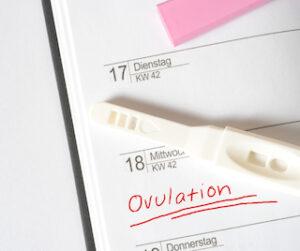
When do you ovulate? You’re much more likely to get pregnant if you know when you ovulate.
For women who have a 28-day cycle (between 21 days to 40 days is normal), ovulation is normally on day 14. But for those of you who have a longer or shorter cycle, it will be different. So, how to know exactly when you’re ovulating? The answer is you don’t, but you can get good indicators if you observe your body.
I was lucky with my timings, when I was sent to have something done (I think reproductive check), the doctor could see that my egg was literally about the be released (she carried out an ultrasound and could tell from the ovary follicle width) in about the next day or so, so that validated my timings. I was incredibly lucky that this procedure and the doctor doing it, told me this information.
So, if you can try and arrange for an ultrasound brilliant, but if you can’t, there are ways that you can tell by yourself:
For this we will look at:
- Cervical Mucus
- Sex Drive
- Basal Body Temperature
- Ovulation Sticks
Cervical Mucus – Immediately after a period you will probably be fairly dry. Then a few days post period you may start to notice a new wetness and a white or yellow discharge. This is the discharge that is letting you know your body is preparing to ovulate. Then, when you’re at your most fertile, your body will produce a discharge that is best described as raw egg white. It’s wet, clear and stretchy and can expand to approximately 5 cm without breaking. To me it was obvious, although not every month to be honest, but when it happens you will notice. When you get the egg white discharge you’re literally about to ovulate or ovulating so (you should have been having sex running up to this anyway) have sex asap.
Sex drive – If you’re feeling in the mood, it’s likely to be the right time to have sex! It’s nature’s way of getting you to have sex to produce a baby. So, try and tune into this.
Basal Body Temperature – I’m not an advocate of charting temperatures, I found it stressful and annoying to do. But it provides additional validation of your cycle. Pre-ovulation your temperature is lower and this is called the follicular phase. There may be a few ups and downs during this period, but nothing dramatic. Then there will be a noticeable large dip when you’re about to ovulate. Followed by an immediate increase in temperature (which you will pick up the next day when you take your temperature) for the luteal phase which lasts around 14 days. Your temperature should drop again the day before you’re about to start your period and you enter the follicular phase again. Plot your temperature daily on a specific BBT chart.
If you track you BBT for at least 3 months, a pattern should hopefully form which will help you pin point when you ovulating. Along with cervical mucus and sex drive analysis, you’ve got a powerful approximation of when you’re ovulating.
The two Fertility Consultants I talked to advised against using ovulation sticks because they are not accurate, however I don’t see the harm in using if you’ve got the funds, I found them fairly accurate to be honest. But I would only use them as a validation to your own body analysis: bbt, cervical mucus and sex drive.
KNOW YOUR CYCLE
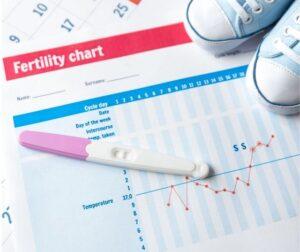
You need to know your cycle to understand when you can get pregnant.
But it also helps you save money.
Eh?
Yup.
If you proceed to consult with any doctors or therapists, then it’s going to save you a lot of time and money knowing exactly (ish) your cycle.
So, chart your temperature for at least 3 months. I personally charted for 6 months and then got fed up of doing it, but that 6 months gave me a powerful insight into my cycle.
Buy a diary and keep track of your period each month and how long it last for.
Chart your cervical mucus changes for about 3 to 6 months also.
CUT OFF DATE
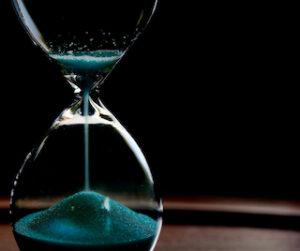
My husband and I decided our cut-off date for trying naturally was 31st December 2017. From memory we decided this in June 2017, after trying for 2 years and several miscarriages later. It was my way of taking back control and it was my husband’s way of being sensible.
Because it is sensible.
Trying to get pregnant can become like a drug, and once you start it can be hard to stop. So, it’s a good idea to discuss a cut-off date otherwise other viable options may also run out.
I really advise you discuss this at the outset with your Partner to ensure you’re both on the same page, plus also discuss your other options maybe?
Remember, you can carry on trying for a natural pregnancy regardless of the other options you pursue.
FOCUS ON WHAT CAN YOU CONTROL

Your brain is a naughty thing and if you’re facing month after month of disappointment, you’re going to reach “The Doom”. This is where you convince yourself that you’re never going to get pregnant. I appreciate you can’t switch your feelings on and off, but you do have a responsibility to keep yourself as positive as you can.
I had some really dark days when I couldn’t get pregnant, I really did, but overall, I’m proud of how I handled myself.
So, what did I do?
I’m not saying this is the right approach, but it worked for me.
I felt I had lost control not being able to get pregnant, so I decided to focus on what I could control and for me that was diet, exercise, supplementation, vitamin D, relaxation, complimentary therapies and distraction.
Yes distraction.
If I became upset I would go and have a cinema binge, or visit a friend, or go for a walk or think about the things I was grateful for.
Draw up a list of the things that make you happy (and allow you to switch off) and when you start to feel like you’re spiralling out of control do one of them.
FERTILITY EXHAUSTION

DO NOT try everything to get pregnant, otherwise you will burnout and definitely not get pregnant. It’s tempting to rush off and try anything, but you need to stop yourself. I know it’s emotional, but please try and be sensible about what you do. Becoming frazzled is going to achieve nothing, trust me.
So, sit down and try to have fun planning what you going to do and when, but in a way that’s methodical. I really recommend using my 40 Fertility Planner.
Also, only listen to a few trusted people or sources, otherwise you will get confused. The amount of conflicting advice and the sheer volume of advice on fertility is astounding and will spiral you out of control.
FERTILITY IS A BIG BUSINESS

Just saying.
Obviously, Doctors are ruled by codes of conduct and professional ethics, they’re Doctors after all. But I also know that the fertility business is big business and you need to be aware of this.
The NHS is a thing of beauty that we need to cherish, but unfortunately if you’re over 40 and trying for a baby I found their outlook to be old fashioned and in desperation you may be tempted to rush to a private fertility clinic.
Just be careful.
Research.
I refer you to the governing body of fertility treatments in the UK: Human Fertilisation & Embryology Department Clinic Search. Their website will give you a list of approved fertility clinics along with their success rates.
GIVE YOURSELF A HELPING HAND

There are some things that you definitely should be doing that will easily integrate into your life and hopefully be easy to adopt. I covered them in my blog post: The Top 10 Things I Did To Get Pregnant Naturally at 41, but the summary list is below again for your reference.
So, my top Helping Hand Tips are:
- Adopt a fertility friendly diet – lots of green leafy veg, protein and full fat dairy.
- Get fit.
- Vitamin D is vital. Yes you will get in a pre-conception supplement, but also go outside every day with no sun protection for a minimum of 30 minutes.
- Reduce stress. Excess stress can stop ovulation. Meditate, go for long walks, listen to soothing music. But make being stress free priority. Remove yourself from stressful people or stressful situations.
- Prioritise sleep. Your body does most of its repair and replenishing when asleep.
- Take a good quality pre-conception supplement containing 400 micrograms of folic acid – Viridian is a good brand.
- Integrate Complimentary Therapies into your life – the ones I recommend I’ve outlined in this book. Remember though don’t try everything at once.
- Do Castor Oil Packs.
I hope this blog post has helped you and provided some much needed clarity.

If you like this post: Natural Fertility for the Over 40’s: The Facts, then read my book: Natural Fertility for the Over 40’s: A Guide to Clear Up The Confusion. It provides A LOT more information from me and various experts I’ve interviewed on this topic.
Best of luck
Gemma


